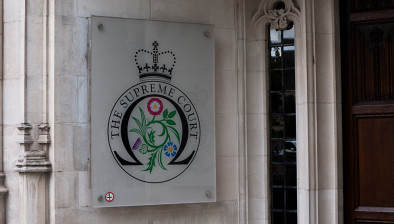Supreme Court rules VAT payable on fund success fees due after company’s exit from tax group

An appeal against a decision that VAT was chargeable on investment fund success fees that became payable after the investment adviser left the VAT group of the company holding the fund has been unanimously dismissed by the Supreme Court.
The Prudential Assurance Company Ltd argued that no VAT was chargeable because the relevant supply of services took place entirely during the period when the two companies were members of the same VAT group, even if the invoice became payable after that, under section 43 of the Value Added Tax Act 1994. The Upper Tribunal and Court of Appeal both ruled in favour of HMRC, which argued that the time of supply rules treated the supply of services as having been provided when the fees became payable.
The appeal was considered by Lord Reed, Lord Hodge, Lord Lloyd-Jones, Lord Stephens, Lady Rose, Lord Richards and Lady Simler. Zizhen Yang appeared for the appellant and Peter Mantle for the respondent. A joint opinion was written by Lady Rose and Lady Simler, with whom the other judges agreed.
Real-world supply
Under section 43 of the VAT Act, companies in the same corporate group could be treated as a single entity for the purposes of VAT. As a result, where one member of a VAT grouping supplies goods or services to another member of the same group, no VAT needs to be charged on that supply. From 1 January 2002 to 8 November 2007, a company called Silverfleet provided investment services to Prudential in return for a quarterly management fee and a “success fee” payable in respect of certain sub-funds when they exceeded a set benchmark rate of return.
On 8 November 2007, there was a buyout of Silverfleet which meant it ceased to be part of Prudential’s VAT group. During 2014 and 2015, the rate set under the investment management agreement was passed, and as a result Silverfleet invoiced Prudential for success fees in excess of £9 million, with VAT payable. Prudential queried the addition of VAT to those invoices by non-statutory inquiry to HMRC, which decided that VAT had been properly added to the invoices.
Prudential appealed HMRC’s decision to the First-tier Tribunal, which held that no VAT was payable. This was reversed on first appeal to the Upper Tribunal, with the Court of Appeal upholding the decision that VAT was payable in March 2024. Prudential argued that regulation 90 of the Value Added Tax Regulations 1995, which implemented time of supply rules in the UK, had no application where the real-world supply took place at a time when the parties belonged to the same VAT group.
It was further submitted that the same conclusion flowed from the decision of the Court of Appeal in BJ Rice v Customs and Excise Commissioners (1996), in which it was held that no VAT was chargeable on services undertaken before a business was VAT registered but invoiced afterwards.
HMRC’s answer to the appellant’s case was that there was no basis for importing a new and different time of supply rule into the VAT Act by reference to the “real world” in which the services were performed. As to the BJ Rice decision, it could not stand considering the effect of subsequent cases in the House of Lords, including Svenska International plc v Customs and Excise (1999).
Separately supplied
Beginning by considering the proper construction of section 43, Lady Rose and Lady Simler said: “We can dispose of this argument briefly since we consider that the Court of Appeal was right to reject it for the reasons it gave. As Newey LJ said [in] his judgment, section 6 of the VATA 1994 deals on its face with time of supply. There is nothing in either that Act or the 1995 VAT Regulations which indicates that section 6 or the regulations made under it are not to be applied when deciding whether companies were members of the same VAT group at the time of a supply.”
They added: “Section 43 is not a complete code. The purpose behind the VAT group provisions is, as Ms Yang submitted, to promote organisational fiscal neutrality as between corporate groups comprising a number of legally separate entities and corporations divided into different branches within the same legal entity. For that reason, the supplies between the members of the same group are disregarded if the corporate entity so chooses and if the member state has implemented the article 11 option. But in our judgment that does not dictate that the TOSR should not apply.”
Considering whether the BJ Rice decision was applicable, the judges said: “In our judgment, the ratio of BJ Rice, in so far as it extends beyond the position of someone who is not registered for VAT because their income falls below the threshold for registration, is undermined by the critical reasoning in the subsequent decisions of the House of Lords referred to above. Put another way, its ratio must be confined to its own facts. Accordingly, we reject Ms Yang’s submission that the ratio in BJ Rice should be applied in this case and that there is no material factual distinction between that case and the facts of this appeal.”
They concluded on the scope of the 1995 Regulations: “Regulation 90 applies to determine when the supply of those services took place for the purposes of applying the VAT Group Disregard in section 43(1)(a) [of VATA 1994]. Applying regulation 90, the consideration payable for those services was determined ‘from time to time’ so that those services were treated as separately and successively supplied at the time that invoices for the success fees were issued. At that time, Silverfleet and Prudential were no longer in the same VAT group so that supply or supplies did not fall to be disregarded.”
The appeal was therefore dismissed.






